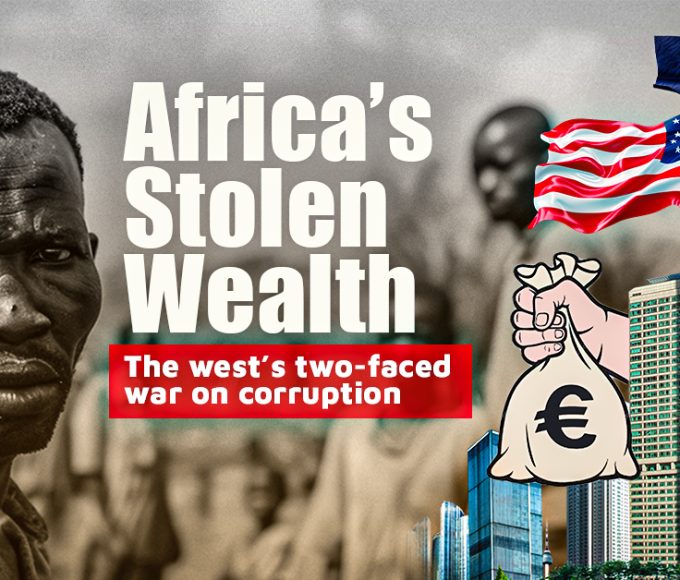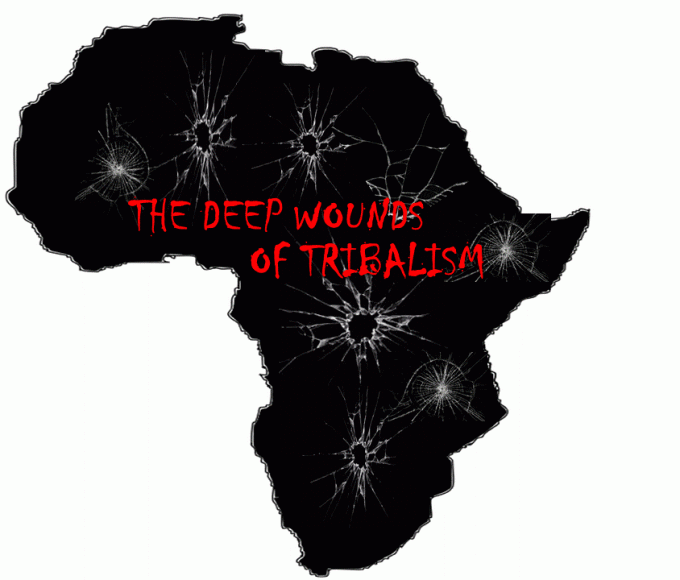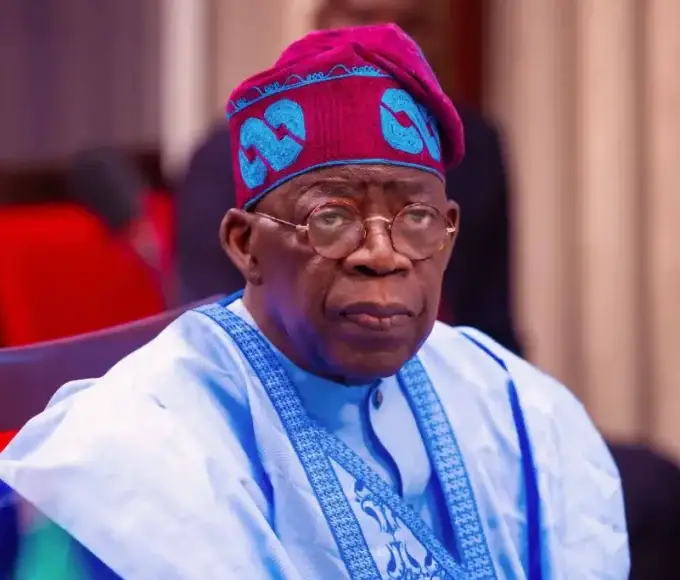
Some Historical Perspective of the Carnage in the Middle Belt of Nigeria

“Two killed, five left injured…” The president has expressed deep sorrow over the killings
“One hundred fatalities were recorded and several thousand displaced,” The chief of army staff has strongly condemned the killings.
“Fifty shot dead, eight beheaded, and the whole nation kidnapped,” The first lady urges the nation to pray fervently.
With Nigeria, it is always the same old story, the same old pattern; nothing really ever changes. It gets to a point when the question on everyone’s mind becomes: How long will this continue?
When we speak of insecurity in the nation, it is a reoccurring tale that Nigerians are most familiar with, of which the people of the Middle-Belts are the chief storytellers as their lands over the years became a playground of pure, unreserved terrorism followed by series of condemnation from government houses and then loud silence that never speak again until the next attack occurs.
But, Why the Middle-Belts? Many have questioned, many have pondered, and many have gone ahead to tell stories from their concluded theories. Yet, the answer to this nagging question eludes many.
While we do not have a pinned answer to this question, we could walk you through the devastating history of a consistent menace in the Middle-Belts that has led us where we are as a people with little or no hope in the face of insecurity.
But first, we define the region.
The Region
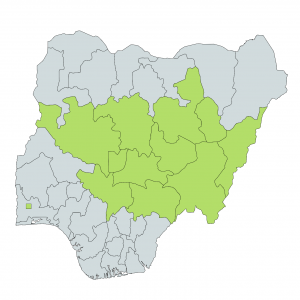
The Middle Belt, as the name implies, lies in the central part of Nigeria, as highlighted, serving as a bridge connecting the North and the South due to its significant population from both regions.
The states commonly identified as part of the Middle-Belt include Plateau, Nasarawa, Adamawa, Taraba, Niger, Kwara, Kogi, Benue, the FCT, as well as Southern Kaduna, Southern Bauchi, Southern Kebbi, Southern Gombe, Southern Yobe State and Southern Borno, all of which are culturally recognized as constituents of the Middle Belt and all of which at one point or another have been subject to malicious attacks.
The combination of these states makes up the vast ethnic diversity, comprising about 230 ethnic groups with different unique languages and cultures coupled with distinct religious beliefs.
This diversity sets the stage for the fight for dominance among the ethnic groups on the one hand and the Hausa-Fulanis who settled in these areas on the other hand, as the tension became rooted in the allocation of resources, electoral competition, fear of religious domination and land rights merging into an explosive mix.
Having established this, we’ll now walk through history into recent events using Plateau, a state plagued by decades of incessant killings, maiming and terror attacks, as a case study.
Beginnings: 2001
On the 7th day of September 2001, news of an ongoing crisis in Jos, the state capital, broke mainstream. Its unpleasant emergence was perceived to be a Muslim-Christian clash. It was a considerable cause of the conflict, though a cover-up for other major issues linked to the ethnic rift between the Hausa-Fulani and other communities in Jos, including aboriginal and non-aboriginal people of Plateau.
With Plateau state hosting 17 local governments, the state has always been known to be accepting and hospitable with a culture of accommodating people irrespective of race, tribe, or religion. This cultural belief can be seen as a reflection in the state slogan, “Home of Peace and Tourism”.
However, Jos, being the state capital, is known to have been founded as a tin mining City in the 20th century, though contested to be grounded in three major versions, namely;
The exploration of raw materials by the Royal Niger Company was the first version as it came into the exploitation of large tin ore deposits in the region, but this was possible by pacification, a means to raid and conquer by conquest in 1920. It would interest one to know that this feat, though fiercely resisted was made a possibility by Uthman Dan Fodio, his sons and flag bearers in their course of Jihad. At the time when the expedition of Sir Richard Temple and Colonel H.W. Laws came into the region, they discovered the aboriginal dwellers of the region (the Berom, Anaguta and Afizare) had in common referred to the region as “Gwosh”. Hence, the reason, to date, “Jos” renouncement remains an anglicized attempt to pronounce Gwosh.
Secondly, an angle of Christianized lore claims that the name “Jos” was coined at the arrival of the Sudan United Mission (SUM) by the then Head of Britain, Dr. Herman Wilhelm Karl Kumm, who turned out to be a renowned German missionary in the middle-belt.
Going by this perspective, JOS was named by the missionaries in a symbolic acronym depicted as ‘Jesus our Saviour’. However, Jos is a predominantly Christian area in the middle belt, and there are numerous aboriginal people who strongly share this belief.
Lastly, the third version originated from the Islamized lore held as a belief of Hausa-Fulani descendants to the region who were mainly brought in by the British to work in the tin mines. These settlers being predominantly Muslim by religion, the claim that they came into a virgin land spurned, thus making them the sole owners and builders of Jos City. To add to this, there also was the claim that the name “Jos” was derived from the Arabic term majus, a term loosely used to mean insincere Muslims and/or non-believers.
Of all the three versions, the first seems to be of logical reason even though the other two still attract a significant level of patronage. Meanwhile, this only provides a more multi-faceted linkage to past events that occurred between the 7th and 17th of September 2001. These events have since served as a catalyst for the reoccurring ripple effects that are experienced to this day.
On Friday the 7th at exactly 2:30 pm after Juma’at prayers, several accounts unveiled the spate of killings ensued simultaneously from the Jos Central Mosque (Masalacin Juma’a) and another Mosque in Dilimi, which both are located in the Central part of Jos town. Even though there were also killings recorded to have erupted in the Congo Russia area and other parts of the town, people recall the shock and confusion in Jos township as they tried figuring out what the actual cause was. Sadly, some residents had the unfortunate fate of losing their lives to the raging ethno-religious crisis, which was growing stronger yet disrupting the peace and serenity of a town known to be of Peace.
What made the crisis more potent was the fact that Jos was known for peace until the opposite emerged. Jos wasn’t known as an environment where a neighbour would lead fellow worshippers to the house of another because they are of different faiths, only to kill them for a dominance struggle. It took a while for peaceful residents of Jos to realize what was going on was a preplanned Jihad move activated by a group of Islamic extremists. Also, these extremists had strategic planning, indoctrination, and coordination long planned for so as to build momentum capable of seizing an opportunity to reign in the carnage they longed for.
For most residents, it was not until Sunday, the 9th of 2001, that they were able to grasp what was going on and rally around to resist and protect their communities against the aggressors. The youth, on the other hand, mostly comprised of men, including the elders, came together to hold vigils and round-the-clock monitoring duties to secure their communities.
However, the death toll spreading across the media rose to hundreds, while in reality, the fatality rate is no less than approximately 3000 lives lost and displacement of over 50,000 documented by a paper uncovering the crisis by Dadem DanFulani and Fwatshask in 2002. Although, there is still a lack of consensus regarding the actual number of casualties to date. Hospitals, government and private alike were filled to the point where triage centres and make-shift hospices were hastily set up by the Red Cross and other support NGOs just to address the increasing number of victims.
Another group of residents who were victims of this crisis were the students of the University of Jos, many of whom were saddled with the task of protecting the campus and staff residences from being razed down. With braveness and rights to exists cheer will, they stood in defense but at great cost, many lost their lives in the process. A corroboration from the student of UNIJOS at the time will provide a detailed account of the carnage experienced during the crisis uprising. By the time a sight of silence was perceived, the crisis of 2001 had left in its wake a city attending to its scars from the destruction, from the terminus market (also known as the ‘main market’) to shops and places of worship. As bad as that might seem, the more morbid reality of rotting human flesh permeated and lingered around the city months after the military intervention had restored calm after the curfew.
Also, the timing coincided with the happenings of the September 11th 2001 attack on the World Trade Centre, 5 days after the Jos crises had begun. Even though that gained more global attention than the Jos crises, one thing remains obvious: things would never be as they were.
The In-betweens: 2004/2008/2010 and More
Soon, activities of the Fulani extremist group became common in other parts of the states having consistent traits, from the Wase crisis in 2002 to the Yelwa crisis between February and May 2004, where about 700 people were killed.
The Yelwa crisis began with armed Muslims attacking indigenous Christians, killing at least 78 people on the first day, 48 of whom were worshipping in a church.
The activities of this extremist group continued, leading to another major crisis in 2008. That crisis left about 761 dead within two days. In 2010, the sad Dogo Nahawa massacre occurred. Dogo Nahawa, a mainly Christian-dominated community of Berom extraction, is located in Jos South Local Government Area, near the state’s capital.
The Dogo Nahawa attack reportedly lasted for about four hours, and according to the Police Command in the state, 109 people, including women and children, were killed, while some state officials maintain that over 500 people were massacred. However, a plaque was erected in the village and had at least 354 victims listed.
Then came the period of suicide bombing. Jos experienced a sustained period of bombing and suicide bombing attacks similar to other flashpoints in the country. Some of the cases were:
- 25th December 2011: Explosion hits Mountain of Fire and Miracles, Jos. Simultaneously, St Theresa’s Catholic Church in Madalla (F.C.T Abuja) was hit, killing 37 and injuring 57. Gadaka and Damaturu (Yobe State) were also hit. The total death toll is estimated at 41.
- 26th February 2012: A car bomb exploded inside the premises of the Church of Christ in Nations Headquarters church when service was ongoing. Originally heading for the church building, which was under renovation, the bomb-laden vehicle was stopped by brave worshippers, killing 3 in the process.
- 20th May 2014: Twin bomb blasts (one confirmed car, the other suspected suicide) rock busy business districts at Terminus Market, Killing 118.
- 24th May 2014: Suicide bomb laden tricycle intended for open air football viewing centre during the UEFA Champions League Final (Real Madrid vs Atletico Madrid), but blew up before reaching its target, killing 3.
- July 5, 2015: Twin Bombs rock Jos City, hitting popular eatery (Shagalinku) and Yantaya Mosque, respectively. In both High-density areas, the eatery exploded first as two female bombers posed as customers before detonating. 4 minutes later, Yantaya mosque exploded after sporadic gunfire and detonation of a suicide vest outside the mosque. Killing 44 and injuring 48.
These attacks were faced with resistance and self-defence by the indigenes and inhabitants of the Plateau, cutting the deliberate show of dominance by the peddlers of this extremist ideology.
Unfortunately, things have taken a downward turn from 2015 till now.
Escalations: 2015
The year 2015 saw a transition of power to another party for the first time since a turn to democracy in 1999. Major General Muhamadu Buhari (Rtd), a former Head of State during the military regime, assumed office as the President of the Federal Republic of Nigeria through the All Progressive Congress (APC). Though a significant part of the Nigerian populace had genuine hope that the ‘change’ mantra espoused by the APC was genuine, it soon became clear that the definition of change was different from what they thought. Just like Chinese whispers, Nigerians at the tail end of the message were left confused when they started to experience what a Buhari government meant as change. His administration jettisoned merit-based appointments and adopted ethnicity and nepotism as a sacrosanct policy in awarding key positions in all arms of government, from the three arms of government to ministries, departments and agencies. There was a heightened preference for Muslim Fulani personnel, benefitting from favourable treatment when seeking government employment. In the spirit of this article, the focus is on security and the Nigerian security architecture was not left out of this new and improved ‘ethno-nepo’ policy. While there seemed to be a relative veil of balance with the appointment of security chiefs, a more concerning development was the posture that the Nigerian security architecture took towards issues of national security.
With Boko Haram ravaging the North East and as the skirmishes by Muslim Fulani extremists continued to occur around the middle belt, there was a renewed vigour and a new dimension which insecurity took. This was the introduction of armed bandits of Fulani extraction camouflaging as herdsmen. While Nigerian society had grown accustomed to seeing herdsmen and their cattle move across the country, there was a boldness with this new brand of herdsmen. To the point where they began invading farmlands, destroying crops and letting their cattle feed on them. This morphed into open threats and the eventual killing of farmers on their farms. What started as rumours began to be a re-occurring theme not just in the middle belt but pervaded into other parts of the country. Herdsmen brandishing military-style assault rifles would raid farming communities, kill the inhabitants and return to the forests where they resided with little or no resistance from law enforcement. In instances where citizens took it upon themselves to defend their lands, there was conspicuous evidence of law enforcement swinging into action, reprimanding and, in some cases, arresting them. One might think this is not necessarily a bad thing, as law enforcement has a duty to maintain order, but when there is a sudden inertia by the same operatives to apprehend the attackers, Fulani herdsmen, questions begin to be asked. It is as if law enforcement does not see them, or know where they are, one wonders why?
Zamfara, Benue, Kaduna, Taraba, Ondo, Enugu, Imo, Niger and many more States. Suddenly, this scourge of armed banditry began to take a more national shape, stretching beyond the confines of the Middle-belt.
In October 2015, Chief Olu Falae, former Secretary to a military government, one-time Finance Minister and Chieftain of ‘Afenifere’ the Pan-Yoruba socio-cultural organisation, was kidnapped and only released after the family paid parted with five million nairas as ransom. In April 2016, his farm was attacked by a group of armed Fulani herdsmen. Sahara Reporters covered an account of Chief Falae’s testimony where he indicated that these men killed his farm guard, opened his chest, and took away his heart alongside his double-barrelled shotgun. He eluded to the entitled nature with which they annexed his land and took it for their own.
“Is it economic? I am an economist myself. They burnt the non-crop area because the grass was already dry. Cows don’t eat dry grass. They burnt it so that fresh grass will grow. They were already breeding my grass as if it was their land.”
He also noted the attacks had a deliberate malicious intent to them, indicating the strife was beyond economic challenges.
“Last year, they burnt my oil palm farm. I videoed it and showed the Commissioner of Police. I played it also at the Afenifere meeting. Why did they do that? To do something that does not enhance their own welfare. I believe they have malice against me. They hate farmers.”
The South-West soon began to experience more herdsmen attacks, killings and kidnappings. When Nigerian citizens ran for their lives into the bushes, fleeing from a hail of bullets showered by armed bandits raiding Yewa North LGA of Ogun State, an estimated 5,000 of them found themselves within the territorial borders of another country, Benin Republic. To put this in context, 688 households, 2163 men and 2,314 women, were recorded to have arrived in Pobe City in Benin Republic, while the Ogun State government was accused of being in denial of such happenings, downplaying the scale of this humanitarian crisis. This indicates lethargy in attempting to resolve the issue, and no one knows who occupies those lands presently.
On the 12th of July, 2019, news spread of the death of one Mrs Olakunrin while in transit around Kajola on the Lagos-Ore expressway. This was said to be carried out by Fulani Herdsmen. What made this news gain peculiar traction was that Mrs Olakunrin was a daughter of Reuben Fasoranti, the then leader of the Afenifere, and was seen as a daring affront to the Yoruba nation. In this case, 4 suspects were arrested, arraigned and prosecuted in a lengthy court proceeding lasting 3 years, leading to 3 of the suspects sentenced to death and 1 charged with aiding and abetting.
In retaliation to these events, the birthing of a movement of resistance to the rising spate of killings was made possible. This was chiefly spearheaded by Sunday Adeniyi Adeyemo, also known as Sunday Igboho. Though having a checkered history in South-Western Politics, he rallied a substantial following while issuing an ultimatum to armed Fulani bandits to leave their lands. This led to growing tremors of self-actualisation of the Yoruba nation, which resonated with his followers, as they were tired of the incessant killings. In response to this, the government of the day moved swiftly into action, sending law enforcement to raid his home in Oyo, riddling it with bullets, killing two people in the process and arresting all inhabitants of the house who were then paraded on live TV. Igboho himself had escaped this assault but was later apprehended, detained and prosecuted in Benin Republic.
The eastern part of Nigeria was not left out of the attacks by armed Fulani herdsmen. Numerous attacks were carried out in a similar fashion to what has been described in earlier parts of this article. Raiding communities, occupying farmlands, killing, kidnapping, the usual suspects. The Christian clergy have also been specifically targeted in this region of Nigeria. Ultimately, the Eastern Security Network was formed in a bid to address the challenges of insecurity. Nnamdi Kanu, who had long been a promoter of the self-actualisation of Igbos, seized the opportunity to create the ESN. But once again, as if on cue, Nigerian law enforcement swung into action with sustained vigour. The military soon began conducting operations to root out ESN members. Not only that but resources were also deployed to locate and apprehend Nnamdi Kanu all the way in Kenya. The Nigerian government successfully coerced the Kenyan government to aid in capturing Mr Kanu and put him on a plane to Nigeria, albeit under questionable circumstances. On his arrival, the Attorney General to the Federation, Abubakar Malami, delivered a live broadcast confirming the capture of Nnamdi Kanu, delivering some of it in the Hausa language for reasons best known to him. So the big question is, if all this can happen to agitators from ethnic groups in the Southern part of Nigeria, how come the same precision can not be applied in search of the terrorist herdsmen ravaging different parts of the country?
Besides the lethargy of security forces, another instrument which has been used to manage the narrative is the media. Over time, this government has taken deliberate control of the media with respect to issues of national security. A case in point is the fallacy of farmers’ herder’s clashes, for instance, because, once again, a clash would imply a balance of attack and reprisals between the farmers and the armed herdsmen. This has never been the case because although there have been some rare instances of effective defence by communities, the scope and span of attacks by the armed Fulani herdsmen have grown exponentially with little evidence of slowing down.
In a BBC Africa Eye documentary titled “Bandit Warlords of Zamfara” that covered the inter-communal crises between Hausa and Fulani communities, a known Fulani warlord who has since been given a chieftaincy title was interviewed. In this interview, he casually recounted the number of people he had killed, indicating that he does not even remember the number of people who have met death through his hands. When this documentary was made public, the Nigerian Broadcasting Commission (NBC) imposed sanctions on 3 broadcasting companies, including Multichoice Nigeria Limited, TelCom Satellite Ltd and NTA-Startimes. They were each fined five million naira, an equivalent of $12,000 dollars at the time. NBC, in a released statement, cited that the documentary “glorified the activities of bandits and undermined the national security of Nigeria”. It also stated that “Broadcasters enjoined to be instruments of national unity and desist from falling into the antics of using their platforms to promote and glamorize subversive elements and their activities”. This move has been roundly criticized by media and citizens alike, attributing it to a deliberate attempt at gagging the media and outright whitewashing the obvious National security issues.
Coming back to the middle-belt, two states that will be explored in subsequent articles are Benue and Kaduna. This is because brief paragraphs about them would simply not do any justice.
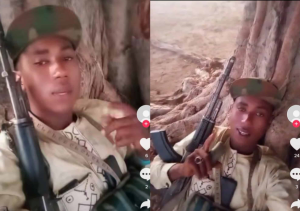
Alleged bandit ‘Flexing’ on Tik Tok
Activist and Labour Party Presidential Campaign spokesperson Dele Farotimi, in an interview with Sahara TV, pointed squarely at former President Muhammadu Buhari, indicating his complicity is inarguable as “there are multiple levels of state complicity” when it comes to the Nigerian insecurity. He also eluded to the Channels TV interview with Commodore Kunle Olawunmi, where it was indicated that nothing had been done with the list of terrorist sponsors handed to Nigeria by the United Arab Emirates (UAE). The UAE had done the opposite by prosecuting and sentencing 6 Nigerians within their jurisdiction with 10 years to life for transferring a total of $782,000 between 2015 and 2016 to the benefit of Boko Haram. In Mr Farotimi’s words
“The same security forces that could track Nnamdi Kanu all the way to Kenya to go and illegally abduct him has no way of knowing where a terrorist financier in Nigeria is. And we are talking about what can be done. What can be done is obvious. What has not been done is equally obvious. Who should be blamed is obvious. The fact of the matter is the Nigerians being slaughtered in Nigeria are victims of rulership ineptitude, complicity, failure and evil because these are preventable deaths”.
The modus operandi is clear; the Owo massacre in Ondo State is one major instance which proves this, where again, innocent worshippers were massacred in cold blood while in church, and by the evening, numerous key office holders had gathered for a party in the Federal Capital Territory.
The agenda is visible to the blind and audible to the deaf. So much so that on a closer look, there seems to be an observable method of assimilation adopted by a group of Fulani who subscribe to this extremist agenda of domination. Now, this is different from the average Fulani man or woman who finds themselves in a place and organically integrates peacefully into society by way of trade, religion, profession, marriage and any other socio-geographic or economic reasons. This is because this particular method of assimilation has the sole purpose of infiltrating, observing and eventually commandeering an issue of interest by ‘ANY MEANS NECESSARY’. For evidence, one can simply refer to the monstrous dimension, which is the spate of killings, kidnap, and armed banditry (in reality, terrorism) that has conveniently gone unchecked.
One ethnic group which can attest to this method of assimilation more than any other in Nigeria are the Hausas. For a very long time, a common lexicon which has been used in Nigeria is ‘Hausa-Fulani’. This depicts a sense of singularity when, in truth, it is an amalgamation of two ethnic groups: The Hausas and the Fulanis. There are growing voices of displeasure within the Hausa community of Nigeria. These complaints assert that the Hausas have been relegated to the sidelines, to the point that Hausa is referred to as just a language and not a tribe with a history and culture of its own. Though the assimilation was made easier chiefly due to the religious ties of Islam predominantly practised by both ethnicities, the kicker for the Hausas is that this narrative is mostly peddled by the Fulani, which is seen as unfair and wrong in their opinion. Some have gone as far as asserting that the extremist nature trait adopted by some Islamic practitioners in Nigeria today was mainly propagated by some clerics of Fulani extraction, but that’s a story for another day.
Lebensraum and ethno-religous extremism in the middlebelt
From a bird’s eye view, the uncanny convergence of dangerous totalitarian ideologies at different points in history can be observed and must be highlighted.
Between the 1890s and the 1940s, the ideological principle of Lebensraum was popularised and adopted in German political discourse. But Adolf Hitler escalated its adoption to great effect from 1933 till his death in 1945 as he rose to power. Lebensraum simply means ‘living space’, and it explained that Germany needed to create more living space for itself if it was to survive. To achieve this, Germany would need to move the inhabitants of Eastern Europe (Poland, Czech, Ukraine, and other Slavic countries) permanently, either by mass deportation, extermination, or enslavement. A justification for this was that the Slavs were non-Aryan (a misguided racial concept describing German purity and superiority over other races). Hitler’s lustful program for world domination largely rested on the ideology of Lebensraum until his defeat and demise in 1945. Unfortunately, before then, the successful indoctrination of this concept into the minds of many Nazis and Nazi sympathizers gave way to the atrocious acts of depravity executed with deadly effect by Germany, acts which are still reviled to this day.
Alas, in Nigeria we are faced with an invading force which has the singular purpose of total domination of every nook and cranny within its reach. This is in the form of the agenda of Fulani supremacy through the machinery of Islamic extremism. An agenda which has been allowed to flourish and thrive over the pasthatears of the Muhammadu Buhari administration.
You cannot negotiate with someone who is hell-bent on killing you and taking everything you own. Just like Winston Churchill warned about the Nazi threat that “By ignoring the German Threat, the British people are living in a fool’s paradise”. You cannot negotiate with a predator while your head is in between its teeth. And so, this is where we find ourselves as Middle-beltans, beings systematically wiped out for the purpose of creating ‘living space’ for the Fulani.
This carnage must be faced head-on and staunchly resisted not just by the middle belt but by every well-meaning Nigerian in every region of the country. As the saying goes, those who fail to learn from history are doomed to repeat it.
Conclusion
There is a difference between a country and a nation. By definition, a country is an area of land that is controlled by a formed government. A nation refers to a large body of people with common features in history, culture or language. While many nations are situated and form Nigeria, it has not felt like a collective Nigerian Nation for a very long time, except in fleeting moments of oneness provided by entertainment or sport. As a word of caution, It must be stated that in a situation where 371 ‘nations’ find themselves together as a country, balance and representation must be keenly courted. The moment one amongst those nations adopts a misplaced stance of superiority over the rest, it might enjoy it for a while, but not forever. Power is transient, and if it is abused by a single group, then the group inevitably sets itself up for the unified disdain of the other groups. There was a slogan once upon a time promoted by Nigerian mass media which said, “Nigeria, good people, great Nation”.
Regrettably, the current reality is far from that statement. From a perspective of national governance, we are not a nation, and if we were, then there would not be tolerance for the systematic genocide of ethnic groups around the country today. We just find ourselves in a country where we happen to live together. We must all respect, share and expose the common value of appreciating the sanctity of life, if we are truly to look at each other and consider ourselves a nation the culture of territorial dominance through conquest will cease.
Read more: Ibadan Explosion: Seyi Makinde Gives Update on J16, Omits ‘Illegal Miners’
About The Author
Related Articles
Africa’s Stolen Wealth: The West’s Two-Faced War On Corruption, Condemning In Public, Laundering the Continent’s Future In Practice
While international bodies and Western governments publicly commit to combating illicit financial...
ByWest Africa WeeklySeptember 6, 2025When Power Breeds Madness: APC’s Culture of Reckless Rhetoric
In a country battling economic collapse, insecurity, and deep mistrust in governance,...
ByWest Africa WeeklyAugust 31, 2025Tribalism Is Not African: Africa’s Wounds Were Carved In Western Boardrooms And Remain A Colonial Tool Still In Use
The narrative of “tribal conflicts” plaguing Africa, often portrayed as an inherent,...
ByWest Africa WeeklyAugust 30, 2025Tinubu’s Nigeria: A Nation Held Hostage by Failure
When Bola Tinubu was sworn in as President in May 2023, Nigerians...
ByWest Africa WeeklyAugust 9, 2025








